[Drama Chat] How did Squid Game change K-dramas?
by DB Staff
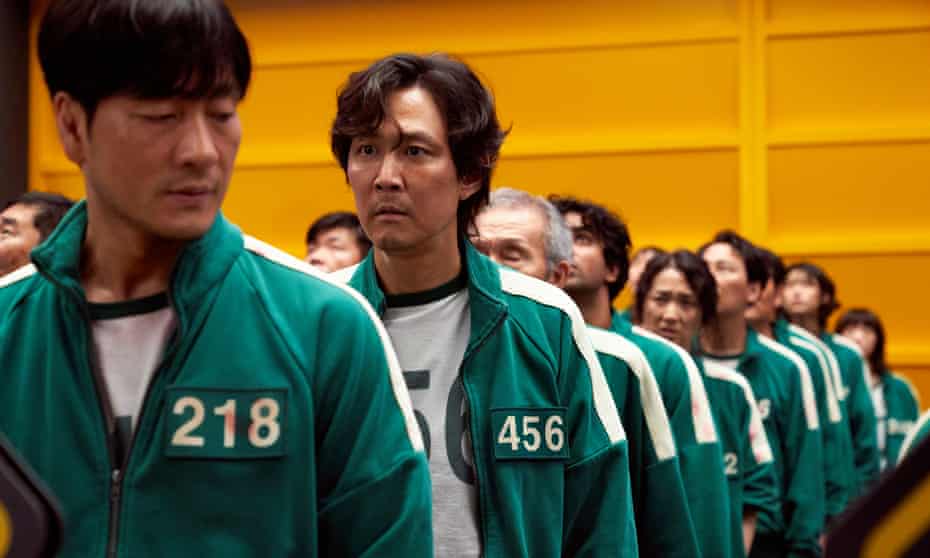
Like it, love it, or lump it, the mega success of Netflix’s Squid Game has rocked the world of Korean content. And it hasn’t stopped rocking since.
How did Squid Game change dramaland for you? Maybe Squid Game meant that the people around you finally saw the K-drama light. Maybe you found yourself tapped for “what to watch next” recs. Or, if you’re like me, maybe you took the annoying route and climbed on your superfan soapbox to explain why Squid Game isn’t actually a good example of a K-drama.
Any or all might apply, and I don’t think they’re mutually exclusive, either.
So, how did Squid Game change K-dramas for you?
Let the chatting begin!
Editor’s note: Thanks for making week one of our Drama Chat a success! We’re looking forward to more~
Tags: Drama Chat, featured2, Squid Game
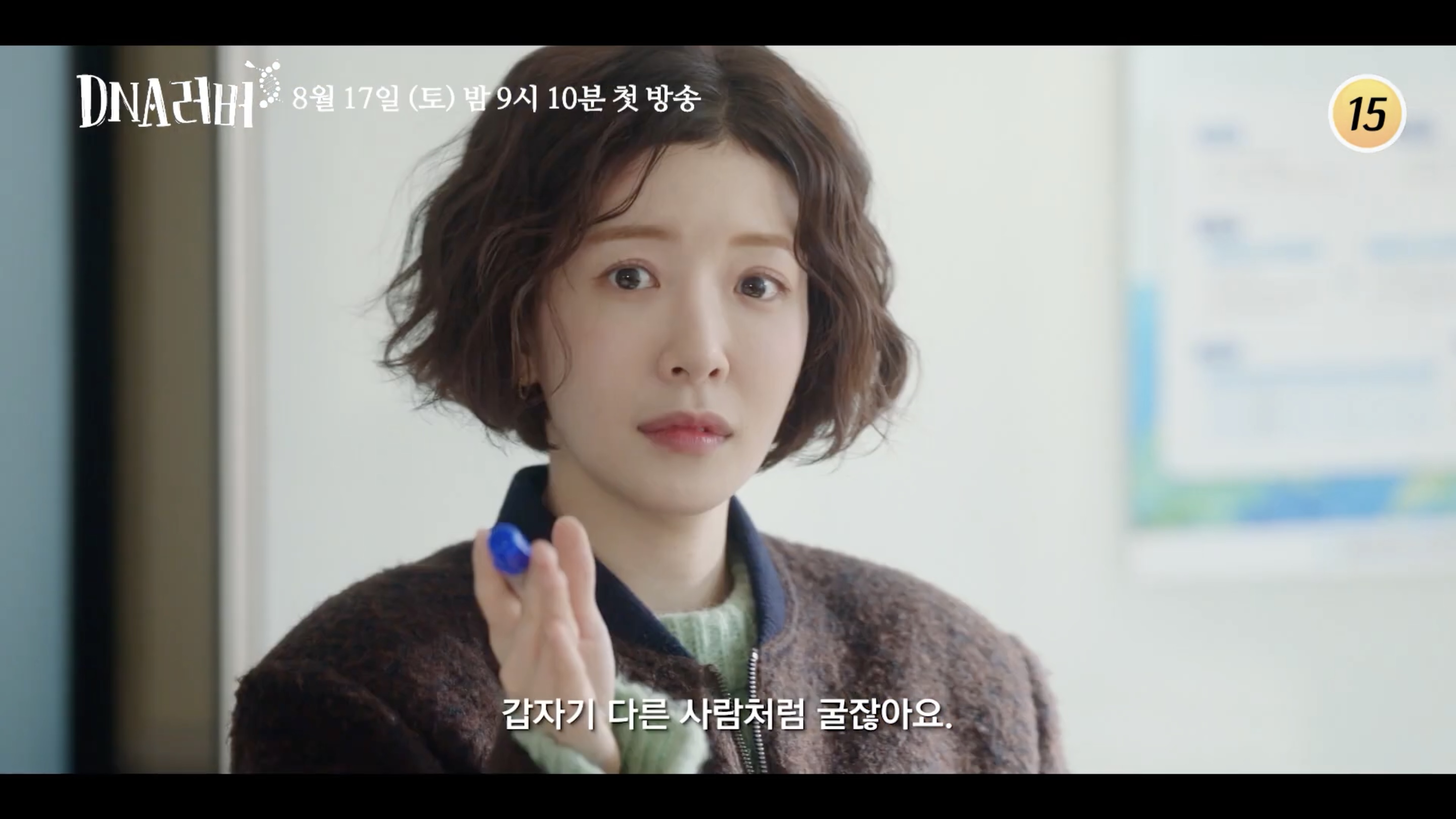

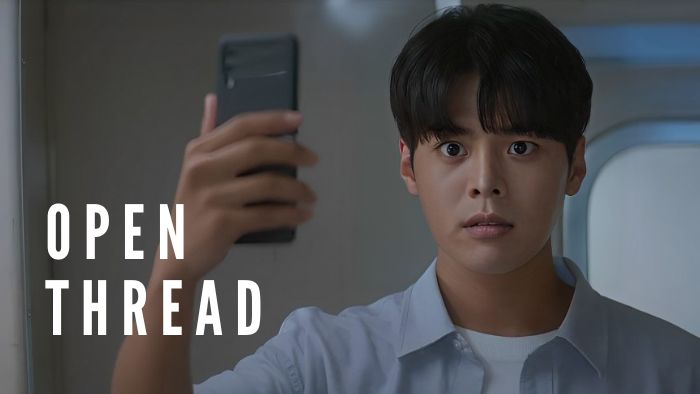


![[Cast Away] A conwoman is possessed by an upright politician](https://d263ao8qih4miy.cloudfront.net/wp-content/uploads/2023/09/castaway_header1.png)

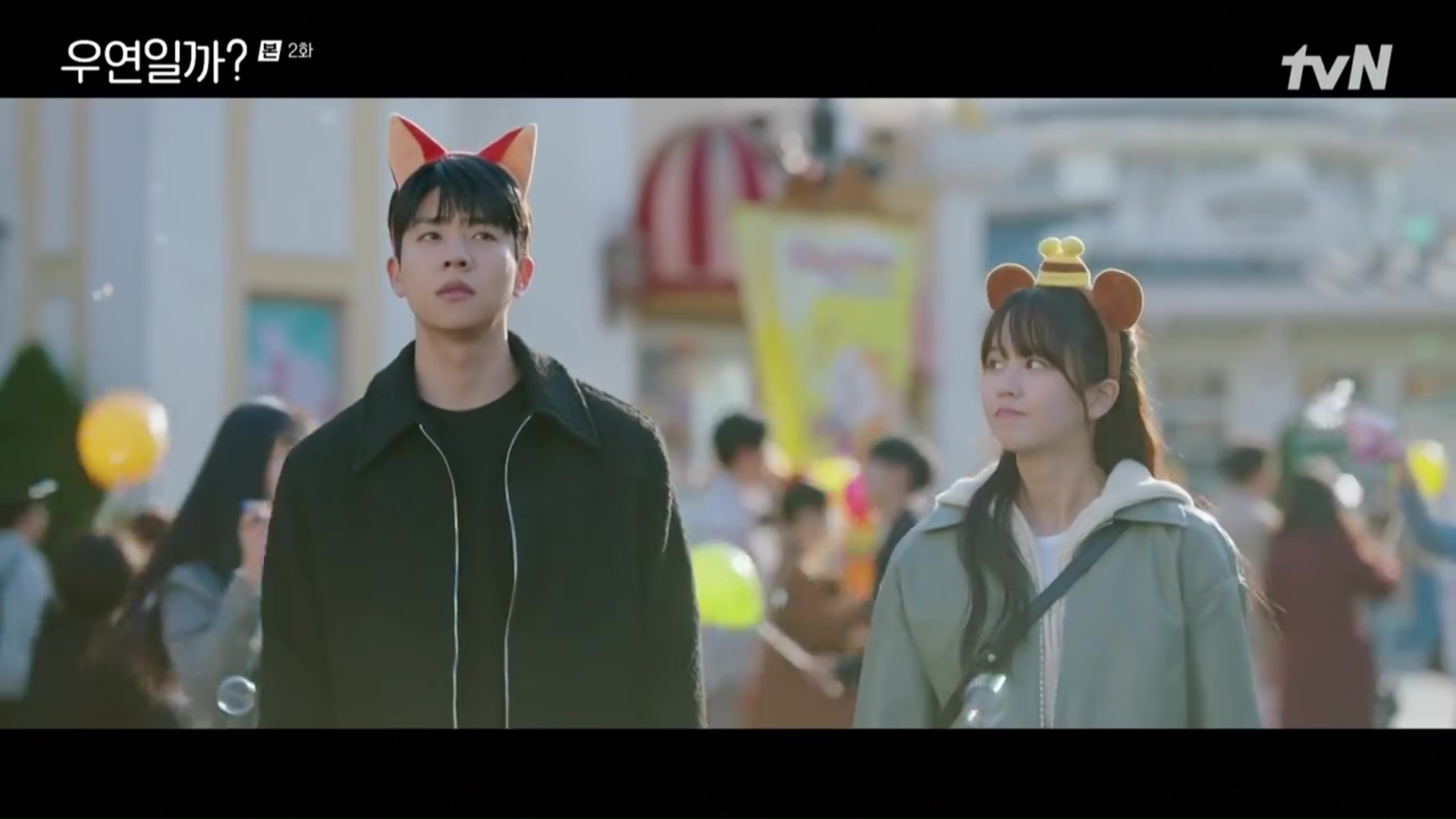
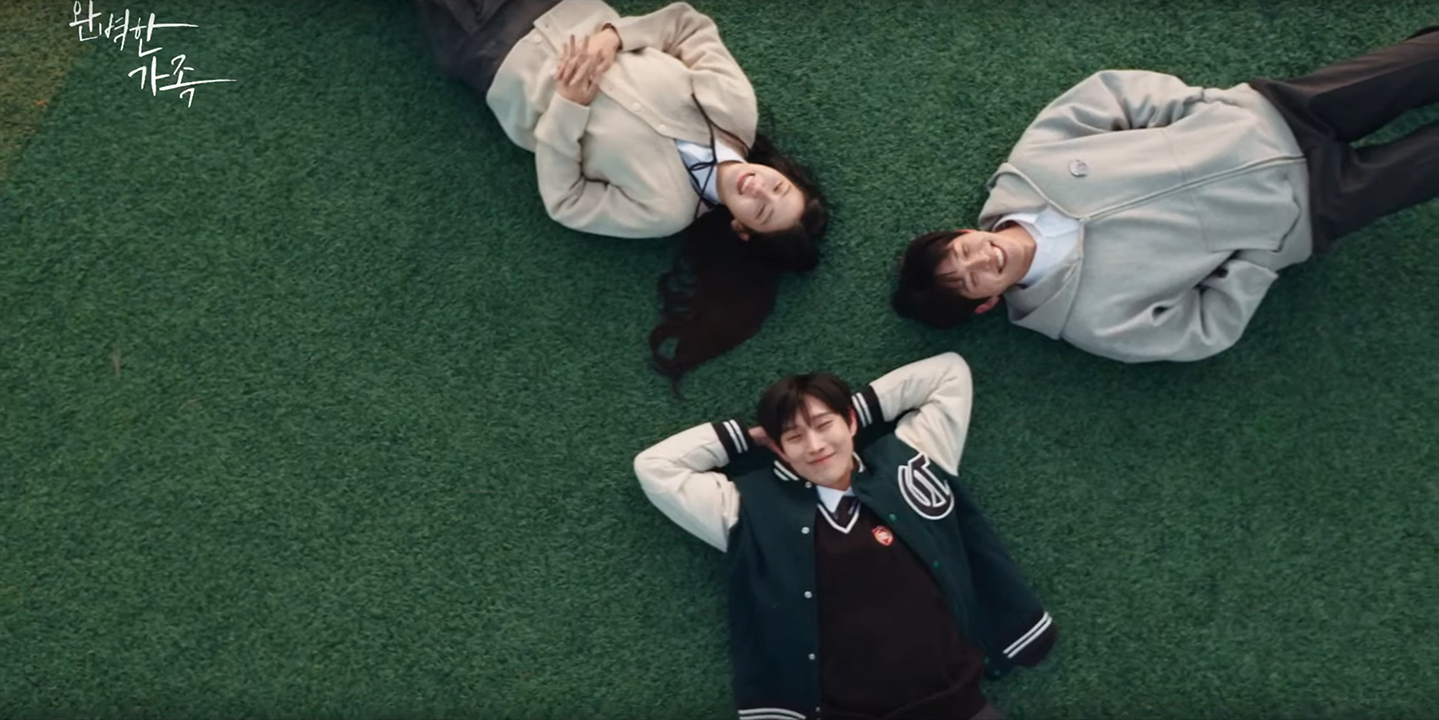
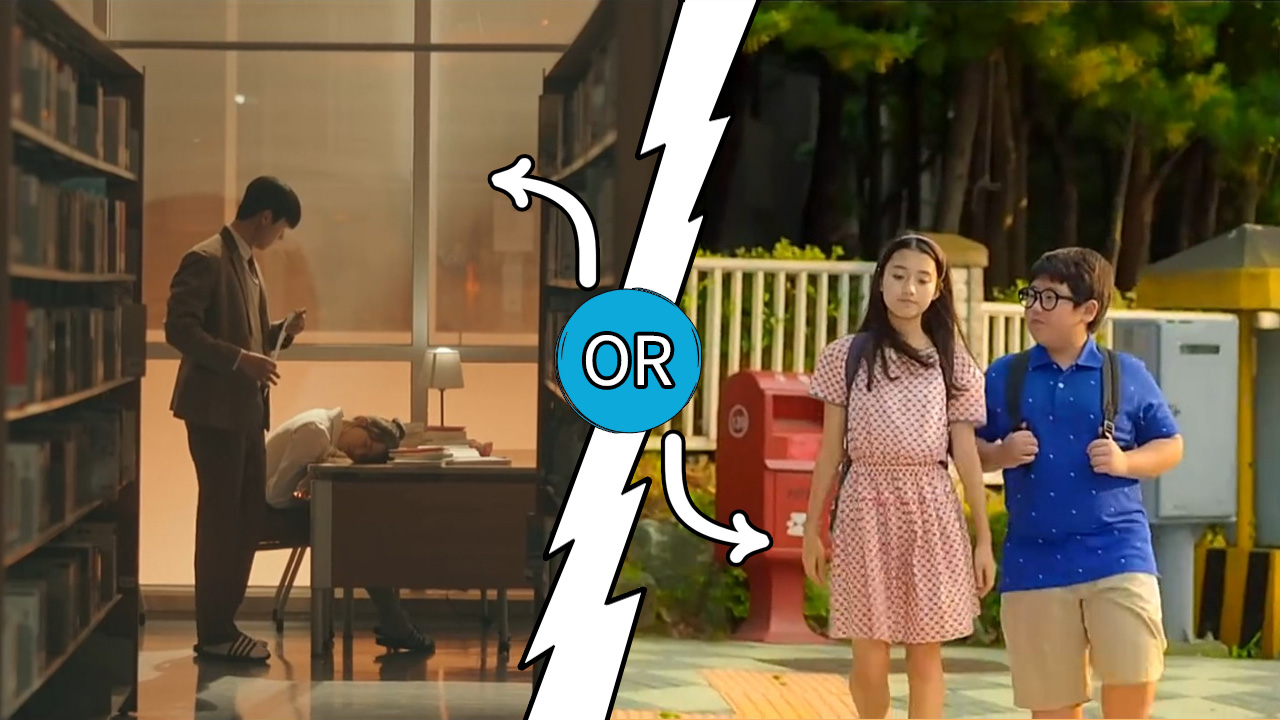
Required fields are marked *
Your email address will not be published. Required fields are marked *
1 Emperor Titus
January 23, 2022 at 7:17 AM
Other then pushing K-dramas into international scenes, maybe one of Squid Game's effect is the burring of K-dramas and K-movies. Stories with edgy theme and content were only seen in Korean movies. Squid Game is basically a long form of a K-movie disguised as a K K-drama, so K-dramas will be more similar to their movies, and get into some stories that may not be possible to air solely in TV stations (even cable TVs like JTBC and tvN, as Snowdrop shown in recent weeks--if this show can only be aired on JTBC alone, I doubt if it can survive till the finale, quality aside ...). This is a good thing.
On the other hand, there is a threat that more and more K-dramas/movies is being more like to Hollywood production. Before Squid Game, even there is an adaption from a foreign drama/movie, there is still some kind of Korean characteristics (notable example: Designated Survivor: Designated Survivor: 60 Days and The World of the Married, adapted from an American and a BBC drama, respectively). The upcoming Korean version of Money Heist make me fear that K-dramas will lost its own feel and style. No doubt Netflix (and many other stream platform like Disney+)'s funding may have make some productions (beginning from Mr. Sunshine, which re-introduce me back to K-dramaland, as well Arthdal Chronicles, which is by definition the most expensive K-production as a whole by far) possible, but it may have made Korean production being "Korean" a lot more difficult.
Required fields are marked *
mindy
January 23, 2022 at 7:35 AM
Rather than being specific to Squid Game, I think the blurring between drama and film is due to Netflix and streaming as a whole. The same sort of thing happened with Hollywood. While there are still your standard broadcast TV shows and your films meant for cinema, streaming has allowed mini series to really flourish in Hollywood IMO. K-dramas are already mini series for the most part, but the flexibility of streaming has allowed both film and TV directors to have more freedom in what kind of story they want to tell, including more flexibility with format and much less censorship than what you see on traditional broadcast TV and even cable. I think that’s why we’ve seen many film directors AND TV directors setting their sights on directing series on streaming platforms.
I think the fear that your standard k-drama disappearing is, frankly, a bit silly. Just like Hollywood is still creating your run-of-the-mill sitcoms and procedurals, the Korean entertainment industry is still going to produce your standard k-dramas. They’ll just be accompanied by more varied content, which I think is always a plus. The typical Korean rom-com is going no where—just look at how many of them are going to be airing next month (including on Netflix)!
Required fields are marked *
beffels
January 23, 2022 at 10:14 AM
I think it’s always possible that (for example) romantic comedies will become more pedestrian and by the numbers though - that seems to be what has happened in Western tv. It feels like content producers have decided only idiots like romance so they’ll make it as by the numbers and basic as possible. (I am bitter)
I don’t think this is a consequence of squid game being massive, just a consequence of mass production of content for streaming services. If you’ve got to churn it out then it’s easier if it doesn’t have to be good.
Required fields are marked *
ladynightshade wants her own ryu sunjae
January 23, 2022 at 11:42 AM
You’ve just explained my entire opinion on this phenomenon - and much more concisely that I ever could. I don’t get the fears many seem to have over traditional dramas “disappearing”. Broadcast TV still exists and they remain pretty tame for the most part. There are just more avenues available now due to streaming services and their relatively uncensored nature, which I think is an overall positive for creators.
Required fields are marked *
cozybooks
January 23, 2022 at 10:26 AM
I agree, it definitely feels like they're blurring the line between movie and drama more and more.
Required fields are marked *
Fly Colours
January 23, 2022 at 12:26 PM
It's funny that you say that the adaptation of Money Heist makes you feel for the loss of feel because I understand what you say - the tendency towards edgier themes, less specifically kdrama esthetics, less tropes-, but at the same time, Money Heist is funny example because it is a Spanish production with a distinctive Spanish flavour. I don't really think SK Money Heist will keep that flavour, and it's only predictable that they use the plot and characters but adapt it to SK tastes and sensibilities.
But, yeah, I agree with your point that kdramas are becoming less distinctive in order to be more palatable to international viewers. Still, I don't think it is necessarily a bad thing if dramas are allowed to be more diverse and tackle controversial themes
Required fields are marked *
Emperor Titus
January 23, 2022 at 2:51 PM
Certainly I didn't see the result of Korean version Money Heist yet, @flyingcolours, therefore that may be me being too alarmist, and I maybe over-sensitive. However, I guess this is a question I must ask in advance, although it may turn out not very true ...
Required fields are marked *
miss h
January 23, 2022 at 3:46 PM
I think Korean writers have done a good job making other adaptations "Korean" and it sounds like they've tried to do that with this adaptation. Korea has its own economic anxieties, so I think the adaptation could really work. We'll see.
Required fields are marked *
Mike
January 24, 2022 at 12:35 PM
Korea took the British comedy 'Uncle' and turned it into a VERY Korean melodrama, complete with scheming apartment complex matrons and evil chaebol grandmother.
Required fields are marked *
Emperor Titus
January 23, 2022 at 2:48 PM
Don't get me wrong.
What I am fearing disappearing, @mindy and @ladynightshade, is not the disappearing of K-dramas, but the disappearing of "Koreanness" of K-dramas. I did said that burring the line in terms of contents and themes between K-dramas and K-movie is a good thing, as I said in my first paragraph, and I don't think I worry that much about that, because that broaden what K-dramas can do. However, what makes K-dramas "Korean" is very unique, and internationalizing K-dramas is, sometimes, a good thing and a bad thing: people may learn more about South Korea, but at the same time, the "Koreanness" of K-dramas may have lost due to a variety of reasons, like marketing, viewership concerns, etc. This is something I think those K-content providers must protect.
Required fields are marked *
laurawaterhouse
January 31, 2022 at 7:23 PM
or korean society is becoming more western too? like the new generation of audiences/production/writers are also changing? e.g. hospital playlist is good but it does not feel like a kdrama anymore. i felt nostalgic watching one the woman last year because it was the only one that felt korean.
Required fields are marked *
2 Elle
January 23, 2022 at 7:45 AM
Overall, I'm pleased that Netflix k-dramas push the envelope in a way you don't see on Korean TV channels. There are only so many ways you can rehash the same formula. I like that there's the option for more gritty, artsy and stylish fare. I think it widens the viewership for k-dramas outside of a mainly female, mainly Asian audience.
Required fields are marked *
Elle
January 23, 2022 at 7:50 AM
Of course, one thing I could do without is the multi-season format!
Required fields are marked *
owl 🦉 🫰
January 23, 2022 at 11:07 AM
Elle, is that really you? 👋 Just stopping by to say hello!
Required fields are marked *
3 welh
January 23, 2022 at 7:55 AM
Squid Game was movie production quality on the small screen. Large international budget funding is the cause and curse of future blockbuster series. American TV is geared toward seasons while kdramas are self contained one run story telling. Netflix funded productions offer A-list stars with higher expectations but greater chance of disappointment. You can see Western influences begin to creep into Korean scripts. And Korean syntax is not being correctly translated in shows. The biggest criticism in Squid Game was the VIP dialogue being straight from Google translate.
International streaming platforms are about increasing content for binge viewers. Kdrama live shoot filming is difficult to feed that content monster. We are seeing more preproduction of series but in Korea that is a big financial risk since producers are not paid until an episode is aired on TV. Hollywood method of paying upfront would help companies and staff, but leads to more production input from investors.
Squid Game is giving more Koreans an opportunity to make a mark in the US and elsewhere. But even pioneer Korean actors in Hollywood still find it a very difficult proposition to succeed at the level of American actors.
Required fields are marked *
4 earthna
January 23, 2022 at 8:40 AM
Lol it was just another drama for me. Predictable but the acting really drove the point home. If anything, if gave people who don't know Korean dramas a taste of what it could be. I'm glad it's getting even more recognized around the world. They got lucky with the timing coz story-wise, it could have been Signal or Secret Forest.
My complaint about its fame though is that everyone capitalized on it including Roblox. Kids on the playground play red light green light as they did in Squid Game, the it "shoots" the others and they lay there on the ground while the rest plays. It's disturbing and insane. Red light, green light had to be banned from schools. It's not the dramas fault but it's still related so I wanted to bring it up.
Required fields are marked *
beffels
January 23, 2022 at 10:16 AM
That is a disturbing twist to red light, green light. We always played it as kids (as it is a kids game) but you just had to go back to the start line if caught.
Required fields are marked *
earthna
January 23, 2022 at 11:04 AM
Right? It was a fun game. It's just crazy that kids were copying it like it was normal. I dont even think theyve seen the drama itself but they knew it from Roblox. So irresponsible to make a game about it that kids can easily access.
Required fields are marked *
5 miss h
January 23, 2022 at 9:17 AM
I really liked Squid Game, but it didn't change anything for me. Most people I know still don't watch k-dramas. Those that watched Squid Game weren't interested in other k-dramas.
As for changes to dramaland as a whole, I think it's too early to say. Streaming is giving writers and directors freedom to tell more mature or controversial stories, which I like. I don't think the more traditional k-dramas are going anywhere, but we will see more variety than in the past. I know people like the single season format and blame Netflix for the trend to multiple seasons, but dramaland was trending toward multiple seasons before Netflix came on the scene. It is what it is. Sometimes good and sometimes bad.
Required fields are marked *
beffels
January 23, 2022 at 10:18 AM
Yeah I agree with this (with the caveat I haven’t seen squid game). I think most people who watched it won’t immediately seek out other kdramas . Maybe some will be more open to trying another if it pops up in their algorithm, but the impression I got was that most people watched the dubbed version and subtitles are a bridge too far.
Required fields are marked *
6 Lord Cobol (Kdramas, like water, flow downhill)
January 23, 2022 at 9:25 AM
SG changed very little for me. I got to ask assorted friends and relatives if they had watched it. And I got to hear them say they hadn't.
Required fields are marked *
7 am1993
January 23, 2022 at 9:50 AM
I think the one thing we can say for certain that Squid Game has achieved is being the first kdrama that entered worldwide pop culture. Most people know of Squid Game whether they watched it or not and can recognize its icons (the red light green light doll, the red suits, the triangle/circle/square symbols, the tracksuits, etc.).
Also, the actors were invited on popular American talkshows to promote the drama. I believe that was also a first.
As to the extent of its influence, only time will tell. Is Squid Game going to open the door to other kdramas reaching worldwide fame like BTS and Blackpink did for kpop?
Required fields are marked *
8 beffels
January 23, 2022 at 10:25 AM
SG didn’t change anything for me personally - I got asked if I’d watched it a few times, I haven’t but I sometimes feel like I should just so I know what happens (also I feel like it’s going to be one of those iconic things that gets parodied a lot).
I suspect it will be more Gangnam Style (super viral, but doesn’t really result in people embracing more Korean pop culture) than BTS, but I’m happy to be wrong - I think wider exposure to different cultures is a good thing for everyone.
Required fields are marked *
9 cozybooks
January 23, 2022 at 10:29 AM
Squid game to me is a part of a larger, slightly disappointing trend to make grittier, more adult themed/rated dramas. Coming from someone who loves cop shows and serial killers but doesn't want to watch every graphic detail, it's disappointing that the genre seems to be disappearing as most of the shows I would have loved are now going for a more graphic take and getting 18+ ratings.
Required fields are marked *
Jance
January 24, 2022 at 3:29 AM
Yes yes yes!! I used to love the old OCN cop dramas - alongside your mainstream romcoms - but it’s all turning to gritty 18s… I don’t want to see torture!! 。゚(゚´Д`゚)゚。
Required fields are marked *
10 KimDewdrop
January 23, 2022 at 10:34 AM
I observed that some of us are worried that after the boom called Squid Game came around, future k-drama contents are going to lose it feel and touch.
But I don't really think Squid Game is going to do that, the changes are already happening right under our noses. It's just that the changes suit us so we are not complaining. For the past 5 years, we've seen writers and directors killing Old tropes and making their work more realistic than before. What made that happen? The ever evolving mind of humans and the 21st century we are in.
I don't really know how much influence Netflix and other streaming sites are going to hold on our beloved K-Universe. But one thing I'm sure, K-drama won't lose its feel and touch but change some things a bit to suit the taste of it's watchers.
Required fields are marked *
sal
January 23, 2022 at 11:17 AM
Comment was deleted
Required fields are marked *
beffels
January 24, 2022 at 10:30 AM
Agree, I think it’s part of what was already happening and is a natural progression based on streaming services making a wider range of content available.
Required fields are marked *
11 ladynightshade wants her own ryu sunjae
January 23, 2022 at 11:57 AM
Squid Game was a good drama and I’m glad it got such widespread recognition, but it didn’t change anything for me as a kdrama fan. Sure, I had many non-drama watchers ask me if I saw the show but that’s about it. It’s not like any of those people branched out to watching kdramas in general (though I’m sure that other people might have done so).
As for if it changed dramaland, I think it’s still too soon to say. The proliferation of streaming services mean that grittier, darker dramas dealing with controversial themes and subject matter can be made with relative ease. However, I don’t think this is an influence of Squid Game, but rather - the creative freedom offered by said platforms. I don’t think it has negatively affected “traditional” kdramas and I certainly don’t think that that type of kdramas are “dying”, as many seem to think. I can think of many such “traditional” kdramas from 2021 alone that were beloved by drama-watching audiences. The presence of a new kind of content does not require the death of the previous kind. Trends that many attribute to Squid Game are just signs of change that happened over a long period of time. We’ve seen nothing in dramaland yet directly as a result of Squid Game’s success - except maybe Wi Ha-joon finally getting to be a male lead (fingers crossed for Little Women).
Required fields are marked *
12 Manuela Kastenberger
January 23, 2022 at 12:12 PM
Ich liebe es aber hab es noch nicht gekukt will ich kein Netflix haben darf 😭 Weill es kostet bin darüber traurig
Required fields are marked *
Jance
January 24, 2022 at 3:36 AM
Schade… Netflix hat mein kdrama Leben geändert. Jetzt bin ich zu faul um kdramas online zu kuken…
Required fields are marked *
13 Jezz
January 23, 2022 at 3:17 PM
Squid Game changed me because this was not one of the Netflix's greatest hit shows but one of the Netflix shows with the most successful critical and commercial reception. Rotten Tomatoes got 94% and Metacritic got 69%. Then, this Kdrama led to some pop culture growth. While bento boxes was still to be the regular Korean food until this day, dalgona candies seems to be hoping for joining bento as as one of the regular Korean foods. Tracksuit revival slowly climbed its growth thanks to this Kdrama.
Another thing that Squid Game changed me was the music. While this Kdrama mostly contained a lot of classical music out there, there was a notable pop song that I still worth to listened over and over again. Fly Me to the Moon was truly covered by Joo Won and I loved this cover. It was originally titled In Other Words in 1954 by Kaye Ballard (https://en.wikipedia.org/wiki/Fly_Me_to_the_Moon) and it became the jazz-pop standards of the 1950s. This song was written by Bart Howard. I really happy that Squid Game music department totally picked and chose this good appropriate cover of Fly Me to the Moon.
Required fields are marked *
14 Mike
January 23, 2022 at 3:28 PM
One positive effect of the success of Squid games is international outlets discovered they don't have to dilute the Korean ethnic character to sell the series overseas. Squid games is VERY 'Korean'. My Name is VERY 'Korean'.
Though 'Parasite' was also a very 'Korean' story I felt the national character got diluted a bit for foreign audiences. There was no nuanced use of Banmal and Jondaemal language, no pointed use of honorifics, no puns or wordplay. The dialog was kept simple, deliberate and slow for foreign subtitling.
Required fields are marked *
15 loveblossom🌸
January 23, 2022 at 8:06 PM
I'm glad I watched Squid Game, but it wasn't like omgwowamazing.
I liked the acting more than I liked the plot, especially with how it ended. Meh. (Still plan on catching the 2nd season. -shrugs-)
It was the first kdrama I watched with my sister so that was nice. It didn't convert her to a fan though. x] I think it brought more interest to kdramas in general from new viewers. So I say the more, the merrier. ^^
Required fields are marked *
16 panshel
January 23, 2022 at 8:42 PM
Squid Game let the world know how bad foreign actors are in K-dramas because everyone collectively hated the VIPs.
There are two extremes of K-dramas -- Netflix dramas with uncensored language, smoking, sex, and nudity, and network dramas with chaste lip-press kisses.
Required fields are marked *
beffels
January 24, 2022 at 10:36 AM
I wonder with the bad foreign actors if it’s the same in reverse for Western productions but we all are just blissfully unaware because it’s not a language we understand. I read an article online with one of the actors saying they will do other takes when they will deliver lines with a more natural phrasing, but it’s not necessarily going to be the one the director will choose because (not being their primary language) they might not appreciate the difference, which seems a reasonable point.
I know it makes me cringe when I see actors from US productions pretending to be from here (a mostly English speaking country) so I’m a lot more inclined to give foreign actors a pass than I used to be.
Required fields are marked *
soulsearch12
January 26, 2022 at 5:56 PM
Then you look at Korean films, and your like "WOAH!!" I'll say the reason why K-dramas have gone backwards with scenes like that is because the Korean Television Council Committee enacted in 2007, that scenes like sex, language, nudity, & such were banned. I believe this applied to public channels, cable has a bit of leniency. Ji Hyun Woo talked about how for films, he can do a bit more racier and tv (Weekenders) he has to do it slightly, and for regular tv (a bit more motion). Coffee Prince/My Sweet Sam Soon talk about un-marital sex, un-wedded pregnancy, & gender.
@beffels Someone online said the bad Westerners were due to the fact that Korea doesn't have SAG (Actors Union), so the productions weren't able to get known actors/good actors as the price is set when they're in unions. Ju Ji Hoon even said how K-dramas are getting more popular, and yet the price for staff/crew have remained the same and how he wonders when that'll change. Also, the actors speak slower to match Koreans viewers so they can understand it better.
Required fields are marked *
17 mimo
January 23, 2022 at 9:34 PM
Frankly, I think it's a little weird that we're gatekeeping what a k-drama should or shouldn't look like. There's a huge variety of Western dramas to suit all tastes and audiences, from Hannibal to Game of Thrones to Sex and the City to Jane the Virgin, no reason why Korean dramas can't do the same. I would imagine that Korean creatives are also keen to take advantage of these avenues to produce different kinds of shows. Just because something is "darker", doesn't mean it's Westernized. You only have to look at classic Korean movies (Oldboy, The Housemaid etc) to see that Koreans have been telling "dark" stories since forever, it's just that the k-drama machinery thus far has not allowed this stuff to make it to TV being beholden to censorship, ratings etc. More variety, more creative outlets can only be a good thing imo.
Required fields are marked *
18 tabong 🦞
January 23, 2022 at 9:37 PM
I didn't pay attention to Squid Games until a bunch of friends started texting me about it. I was like "what are they doing watching a kdrama?" (not like a bad thing, but more like surprised as hell since people around me are always making fun of me because of kdramas/kpop). So when Squid Game became n1 on Netflix (in my country), I posted something like "maybe now people will learn that they're called koreans" -for ten years I've been hearing people called them anything but that-. I was happy about the show getting so much attention in my country.
Then I watched the show and well, even if they used korean games the show felt more like a sequel of Saw than a kdrama. Not precisely a bad thing since I enjoy those kind of movies (if the finale was different I would've liked the show tbh), BUT I knew my friends weren't going to watch other kdramas after that one because kdramas aren't like that. So I was kinda sad about it.
Besides those two moments, I don't think Squid Games changed anything for me. Maybe it's because I've watched way too many american movies with that concept, but most of the time I even forget that show exists. So it was more like a temporal change?
Ps. Am I the only one that thinks Parasite has drama vibes? With Parasite I actually thought people around me could start watching kdramas.
I could recommend kdramas to someone that likes Parasite, since I would've am idea about a kdrama that person may like. I can't say the same thing about Squid Game, tho.
Required fields are marked *
19 wapz
January 24, 2022 at 9:03 AM
I'm actually surprised that Squid Game didn't leave as big an impact on the spread of kdramas as much as people liked it. In fact, they also recognized things like good acting and the overwhelming emotions that kdramas induce. Atleast people in my circle would get curious but never really try anything else. Maybe its because there aren't many shows of the same type like SG. I think SG will keep growing but will that love spread to the rest of the kdramas? I doubt.
Required fields are marked *
20 corebyte
January 24, 2022 at 10:22 AM
Perhaps the primary way Squid Game will change K-dramas is that it will attract more money to K-drama production. There will be ripple effects from that, as we've already seen with the influx of Netflix' bags of money in recent years.
Generally I think it's a positive thing, as long as Koreans remain in charge of all aspects of production. If the producers bow to U.S. influence and culture in developing a story, K-dramas may well decline into the miserable cesspool we know as American shows.
Korea has been wise to allow just a bit of evolution of a tried-and-true formula; for example, having a transgender character in Itaewon Class, or the occasional minor gay storyline. If they expand on those too much, perhaps many of those who flocked to exclusively watching K-dramas will abandon those just as they did American shows.
Regardless of what happens, I'm optimistic that the Korean writers' astounding creativity, within the structure of Korean culture, will continue to gel as the drama-production powerhouse we have come to know and love.
Required fields are marked *
Doppelganger
January 25, 2022 at 2:36 PM
Miserable cesspool we know as American shows
Rather condescending remark to make considering that America is churning out some incredible shows that are just as good, if not better, than anything Korea is churning out.
Required fields are marked *
miss h
January 25, 2022 at 3:44 PM
I agree with this. I love kdramas but there are some really good American shows out there that I enjoy just as much.
I also take issue with the idea that if they expand on "the occasional minor gay storyline" people might abandon kdramas. I would hope that people want well-written stories, whether the characters are straight or gay.
Required fields are marked *
mindy
January 25, 2022 at 4:06 PM
GIVE ME ALL THE GAYS.
Required fields are marked *
soulsearch12
January 26, 2022 at 6:15 PM
Jeon Do Yeon wants to star in a female love story with Jeon Hye-jin. Lee Se Young wants to star in a womance with IU. Son Ye Jin also said she wants to star in a female romance too. I mean hello?! When top stars want to star in one, why aren't producers/writers doing so?! Give the people what they want.
mindy
January 25, 2022 at 4:03 PM
People who make these comments probably haven’t actually watched American shows in a decade.
Go watch Ted Lasso or something, guys. There is plenty of quality feel-good TV out there.
Required fields are marked *
Doppelganger
January 25, 2022 at 4:12 PM
Right? Are they watching Real Housewives or something?
Hello Succession (!!!)? The Leftovers? White Lotus? Mare of Eastwood?
Different countries are good at different things for TV. Some kdrama viewers have a weird superiority complex towards Western shows that is unwarranted.
Required fields are marked *
soulsearch12
January 26, 2022 at 5:48 PM
"Some kdrama viewers have a weird superiority complex towards Western shows that is unwarranted."
IA. I wonder where it stems from? I guess apples to oranges, b/c there's always going to be some good shows or bad shows no matter which country. Ironically speaking is a lot of their fav Korean actors/actresses love Western TV. Cho Seung Woo said he loved Narcos, and watched Game of Thrones. Kim So Yeon loves Game of Thrones, and based her role in Penthouse from Cersai (GOT). Lee Soo Kyung said she loved Fleabag, and Lee Junho said he enjoyed Bridgerton. Money Heist is also very popular amongst Korean talents. I came cross a disturbing tweet that said that K-dramas shouldn't have LGBTQ+ people on the shows, and I wonder if the naysayers who look down on Western shows don't having LGBTQ+, the bed scenes, and such. Hmm...oh well, they're missing out!
mindy
January 26, 2022 at 5:56 PM
@soulsearch12 I’ve seen people say similar things about having LGBTQ+ people on dramas, and… do they think gay people don’t exist in Korea?! Gay people live in Korea and want and deserve to be represented. Gay people watch K-dramas and want and deserve to see complex portrayals of characters of their sexuality. I’ve been ecstatic about lesbian rep in 2021 and am so glad K-dramas and, by extension, Korean society is becoming more accepting, bit by bit. Cry more, homophobes.
soulsearch12
January 26, 2022 at 6:09 PM
@minteer38380 I think its people who are from conservative countries who have this mentality. Not saying the West is a beacon for this, but it's sad that there's not much protection against them in Korea. I know Korea isn't good with their track record with the LGBTQ+, but even they've safe spaces where they can hang out/be themselves. LGBTQ+ in dramas are either implied, queer bait, alluded from one person (bromance or sismance), no kisses, or ends in a sad way. I think back to Mine with one of the actresses who opposed it, and I cringe hard. In 2007, KBS did a Lesbian drama special which got major complaints so they buried it. 2010: Life is Beautiful and they cut the Gay Wedding scene due to religious complaints. Since then, its been a while in public channels seeing that representation. I'm aware that there are probably LGBTQ+ actors who can't come out, so its definitely not easy.
There's still ways to go, I'll say Korea producing more BL content means they know how popular it is, but I also hope they create more stories where they can exist as people. Honestly, OTT service will probably create that instead of the public/cable channels. I wonder which actors are homophobes, and don't want to? Vincenzo had that scene where the only Gay person was a criminal who preyed on men. Like you said, the more positive portrayals, the more it can break down those barriers little by little.
Required fields are marked *
laurawaterhouse
January 31, 2022 at 7:40 PM
personally, it is not which is better or worse, but more of variety. in the past, dramas from different countries feel differently. i used to watch american dramas for cool teens, japanese dramas if I want to feel awkward, korean dramas for slow burn romance, mexican ones for passionate love. not all dramas are homogenous, but there was a feel to it. of course, we cannot stop them from progressing but sadly it feels like everyone's going the western route. the nurse files went the weird route last time, but it was not a hit. squid games was still more dramatic compared the the average western drama, but it still felt toned down against old kdramas. but again, things will always change
Required fields are marked *
soulsearch12
January 26, 2022 at 5:42 PM
Honestly, I'll say for a small country Korea makes around 90 dramas annually which is very impressive! The only thing I wish for is that Korea has unions for their actors/crew/staff/animals. The KBS fiasco is shameful. But yes, both are different industries/different cultures. Plus, I feel like in Korea, the pressure/image can feel more pressuring on the actors. Thus, I feel like sometimes they get conscious on screen.
Sometimes, I feel K-dramas can feel heavier than Western dramas because a lot of times themes of justice, violence, han, & systematic wealth inequality are mentioned throughout. But I feel because most of us are removed from the culture/context, that the inner politics/context doesn't weight on us as heavily as it does for the domestic audience. I'll say Western dramas are multi-seasonal, so if done well, they can dig deeper/deepen their stories. Korea is very miss when it comes to multiple seasons.
Required fields are marked *
21 Mike
January 24, 2022 at 12:39 PM
I'm less frightened of Netflix and more frightened of Disney+. Disney has a nasty habit of taking control of a large popular franchise and turning it into a focus-grouped corporate monstrosity with all the life bled out of it.
Required fields are marked *
22 LoveKDramas
January 24, 2022 at 1:57 PM
About SQUID GAME
The problem of such tv series like Squid Game, is that they desensitize the viewers to human cruelty towards other humans, male it fun in so far as they entertain us with watching people die under the hands of other people - for money for some and fight against boredom for others - none being « right » and morally justifiable.
do you realize that this is paving the road for real-life battle-royale or hunger games in a future that seems less and less distant… and for those who would say never, be reminded that history loved to repeat itself and that it already took place - be reminded of the circus games under Caesar etc. Distant and not so distant history abounds with that.
Killing other people - whatever the pretext - always amoral and unjustifiable - should never become a glamour and a fun & entertaining thing to watch.
I even wonder/suspect where the writers got the idea from….
Required fields are marked *
LoveKDramas
January 24, 2022 at 2:00 PM
The key message here is that when you watch such shows, whether you realize it or not, you get desensitized. And believe it or not, that’s the purpose of these shows.
Required fields are marked *
Doppelganger
January 25, 2022 at 2:27 PM
You could also say that the problem with kdrama romcoms is that they give people (especially women) a greatly idealized version of romance and even glamorize abusive behaviors...
Required fields are marked *
LoveKDramas
January 25, 2022 at 11:20 PM
I think we could debate endlessly on the side effects of watching movies and series 😉
Regarding rom-com, i think it can create false expectations, or put pressure on relationships to meet certain romcom standards 😉 rather than accepting abusive behaviors, because so far, I haven’t seen any kdrama encouraging a woman to stay in an abusive behavior (rather she may kill the abuser 😱🤪😉 )
Required fields are marked *
LoveKDramas
January 26, 2022 at 12:06 AM
« Violence in Films and Television
Joanne Cantor, in Encyclopedia of International Media and Communications, 2003
II.A.3.e Desensitization
Desensitization is another well-documented effect of viewing violence. Desensitization is a psychological process by which a response is repeatedly elicited in situations where the action tendency that arises out of the emotion proves to be irrelevant. Desensitization is sometimes used to treat phobias by gradually and repeatedly presenting the frightening stimulus under nonthreatening conditions. Over time, when desensitization works, the phobic response becomes less and less intense. Analogously, exposure to media violence, particularly that which entails intense hostilities or the graphic display of injuries, initially induces an intense emotional reaction in viewers. Over time and with repeated exposure, however, viewers often exhibit decreasing emotional responses to the depiction of violence and injury. Desensitization to violence has been documented in a variety of outcomes. For example, it has been observed as reduced arousal and emotional disturbance while witnessing violence, as greater hesitancy to call an adult to intervene in a witnessed physical altercation, and as less sympathy for the victims of domestic abuse. Special concern has recently been raised about the desensitizing effect of violent video games, and there has been much speculation about the contribution of “shooter” games—which provide both training in gun-wielding techniques and strong desensitization training experiences—to recent school shootings »
Required fields are marked *
merry
January 27, 2022 at 2:31 AM
It is quite good you raised this point. I forgot to check what the rating advise for the show was, but clearly it is for mature audiences. I would like to think the 'shocking', over the top, treatment that impressed on me about the show is the opposite of desensitization. I felt some humanity in it, with the struggles of the main character, the trust and betrayal between friends and the pains people will go through for their sibling or family. The sets, the ordinariness of the childhood games suddenly becoming bigger than you imagine makes one think and reflect of what we take for granted can be viewed differently. There is an English author which also up-ended some of popular fairy tales for children. Not sure if its Angela Carter. Over the christmas break i watched two impending doom dramas-- Just look up and a dorama Japan Sinks: A People of Hope starring Shun Oguri (familiar name to jdorama fans). The contrast between these two is really striking and reflective of culture i think. But more than that. The Just Look Up was an in-your-face trying to shock type of narrative, which might be a similar reaction to Squid Game for some. I did not like it one-bit, even as i liked some of the actors in it. I watched the jdorama first and I was quite engaged with it. I was trying to pinpoint why the difference in reaction. I would like to think it was more than just cultural differences. For those who like this kind of shows, watch it and tell me what you think. It's the the H word-- humanity. This is what we should continue to look for as audiences and hopefully our writers and producers will continue to bring our attention to in every story of every day for every human. Lest we forget.
Required fields are marked *
LoveKDramas
January 27, 2022 at 11:07 AM
The problem is that - and I hate Netflix for doing that intentionally - these shows are very smart, in the sense that as you wrote in the beginning, you empathize with the protagonists…. And that’s what they want … Because then you can forget that the underlying rationale is beyond amoral - imagine that a lottery could do the trick - or to stay closer to squid game screenplay, games where you are eliminated but don’t die… but that would unfortunately not be as entertaining.. either for the crazy fucked ups who organize such games, and for the viewers - because there would be no « thrill and scare »… isn’t it horrifying…
Since you mention Japan, Battle Royale is an « old » Japanese movie
https://en.m.wikipedia.org/wiki/Battle_Royale_(film)
All in all, nothing new under the sun, and that is scary…
Required fields are marked *
merry
January 28, 2022 at 3:12 AM
Got your point. Did not go deep enough into the solution being proffered. I just skimmed through for the entertainment. Did not take it seriously enough. Thanks,
Required fields are marked *
merry
January 28, 2022 at 3:16 AM
Re: Battle Royale. Have not watched it. Sounds like Alice in Borderland, another Japanese netflix show.
Required fields are marked *
23 Becky
January 25, 2022 at 5:43 AM
Can I just comment that I worry about SG changing Kdramas, because I don't think it was a very good drama? Yes the first few episodes were shocking and different, but where was the typical "heart" of the drama that is so central to most kdramas? I didn't care who won the games--I didn't feel connected to any of the characters except for the policeman, but I knew he was probably not going to make it off the island, so I wasn't especially sad when he was killed. I love kdramas because they make me care about the characters portrayed, even a lot of times, the bad guys. But not Squid Games. It was all shock and blood, without depth.
Required fields are marked *
LoveKDramas
January 27, 2022 at 11:20 AM
Netflix is corrupting little by little the very essence and uniqueness of kdramas and culture… what they’re doing is extremely perverse… they’re promoting a decadent culture sometimes hidden under glamour ribbons… producing some proper kdramas in order not to lose the kdrama lovers, some not so much so - the Trojan horses (nevertheless can fall into that category, or their soon to be released version of 50 shades of grey - Love and leashes- that looks just like a regular innocent romcom, when it is not) down to the totally amoral ones like Squid Games…
Required fields are marked *
24 Doppelganger
January 25, 2022 at 1:16 PM
The one thing Squid Games has done is cemented Netflix's legitimacy in South Korea as THE production company to go for now, and disrupted the Korean entertainment industry as we know it. Everyone wants their foot in the Netflix door. I'm seeing some actors (like Yoo Ah In) start to work exclusively in Netflix productions.
I don't get all the hand-wringing over Netflix and Squid Game "polluting" kdramas. 1) Tastes change over time - evolution is the natural order of things, and 2) many viewers (and actors and writers) aren't so inclined to the standard Korean kdramas. It's good to have more variety for everyone.
What I am most interested in seeing is how the industry changes in response to Netflix's ascent in Korean entertainment. How are actors, directors, writers, investors, thinking and strategizing about their careers now?
Required fields are marked *
LoveKDramas
January 28, 2022 at 7:27 AM
The problem is that Squid Game is utterly amoral in its premises. That rich people are fuckedup enough to get entertained by watching desperate people kill each others, and that viewers Are entertained by this without any reflection on the premises, Not to mention Sg Conclusion, , the summum of amorality and a decadent society : since the winner plans on joining the f*dup organizers as Life is meaningless and boring Without this thrill when you have so much money that that it loses its value If not for SG -meaning the conclusion validâtes this trash
Required fields are marked *
25 Rachel2
January 25, 2022 at 1:22 PM
I love old-school Kdrama romcoms, tropes and all! I'm all for variety, but I hate the implication that there was something wrong with the previous generation of Kdramas that needed to be fixed. I loved that the OG Kdramas catered specifically to women and the female gaze; serialized rom-coms basically don't exist in Western TV. It's fine to like romance! We shouldn't devalue it just because it's something enjoyed by women more than men.
I've heard people saying that the new gritty dramas are more realistic, but of course Squid Game or Kingdom are just as fantastical as rom-coms. Serial killer and revenge dramas are also unrealistic. There just aren't that many serial killers in the world, and revenge rarely works out the way it is portrayed on TV.
To those saying that we still have the old tropey dramas, that's true, but there are definitely fewer good ones than there used to be, unfortunately.
Required fields are marked *
beffels
January 25, 2022 at 2:16 PM
I agree! I really don’t like the perception that gritty/dark/miserable = more realistic; along with tropey = bad (obviously it can be; my biggest concern with the rise of streaming in all media - not just Korean - is that the requirement to pump out content means things get very by the numbers with not much thought or feeling in them very quickly. That doesn’t mean everything will be like that, but it makes it a lot harder to find the good stuff).
It’s really annoying when people dismiss romcoms being unrealistic (as if that somehow makes them less worthy of your time) - I mean, sure, no one really trips and lands on someone’s lips 😅 but most people will experience some form of romantic attachment in their lives - more than will have a brush with a serial killer.
Required fields are marked *
26 immawish
January 25, 2022 at 7:55 PM
I hate to be that person who brings down what people thought of something, but the hype on Squid Game REALLY is the easiest and clearest example of what the word overrated means.
In one hand, I'm happy that the netflix bloom of kdrama actually brought out so many themes that probably won't even close to air on tv (Extracurricular, squid game itself) but as we all know how dramaland works sometimes they see a success in a drama then overused that theme (Sky Castle, Penthouse then followed by countless pointless dramas with the theme; World of marriage then
followed by so many dramas centered around affairs). As for squid game, I do hope that it widens the perspective that writers can get more creative with what they did but not exactly following their theme because honestly... i think one squid game is enough.
On the other hand.......... I hate to say it...... but honestly....... I don't see how squid game is entertaining in any way kdramas has ever entertained me (I'm not talking about bright dramas I mean Forest of Secret entertains me, Signal entertains me). I literally found no fun in squid game in ANY aspects. And honestly it's unfortunately if people watch squid game and think and it's what kdrama is supposed to serve. No.... Kdramas are much more than that and they're not only 'good' when they're trying to be edgy. There are a lot of sh*tty ones, but there are also a lot of great ones, be it romance, comedy, slice of life, something unique that I honestly think (as somebody who also watches a lot of western series and movies) western production could never replicate.
And last but not least....... I do hope the hollywood awards spotlight on squid game doesn't make people expect so much from squid game just to be faced by what squid game is then ended up thinking it was indeed overrated and would never come close to any kdrama ever again..... Because as much as i love the grandpa..... him winning golden globes (well yeah, golden globe is a mess) over (well i haven't watched the other nominees) Kieran Culkin in Succession..... is somewhat.......... frustrating personally for me.........
Required fields are marked *
27 soulsearch12
January 26, 2022 at 5:37 PM
Some great comments here! I'll say K-dramas have always been popular esp. in Asia where its mainstream. However, I'll say its more what Netflix has done to push/introduce audiences more to them that has changed the most. Their marketing team, money they've, resources, globalization, & social media have helped K-dramas/K-content reach a larger audience then they would've never reached back then. There's a reason why Netflix put over 500 million $$ into K-content last year alone, & b/c it helps them with their subscribers grow. I think Squid Game has helped K-dramas/K-content get more recognizability in terms of awards season amongst Hollywood. The main cast of Squid Game all signed to big Hollywood agencies.
For me, its not saying one is better than the other, I think that we're going to see a lot more OTT services do K-content (Like Apple+), and more co-productions between different countries create content. I know CJ E&M (Who have done CLOY/Hotel Del Luna) have invested/stocks in these Hollywood companies so I forsee a lot of remakes unfortunately :/. I would love to see some of my favorite foreign actors work with Korean talents. Side note: Park Chan Wook (famous Korean director) is working with HBO, so I also see the director of Squid Game also work on more international projects. Basically, has it changed K-dramas completely hmm yes/no?! Yes, in that they're finally getting acknowledgement from a global audience in big awards which is great. No, in that Squid Game had the right timing, luck, & situation where it slowly built up to become this global phenomenon.
Even after, I saw many say Hellbound/The Silent Sea was going to do that but it hasn't. I think more creators will create shows with international audiences in mind now. And more and more will have to be careful not to offend foreign audiences. There's still issues, ahem Penthouse, and even in Squid Game there was a rather alarming scene that painted the gay guy in a bad light. So Korea still has ways to go when it comes to content (racism, homophobia, & such). Even Kim Eui Sung is working in an Apple+ show with Anne Hathaway/Jared Leto, so I see Korea becoming the new China in the sense of Korea being the Asian country in media that's creating hot content.
Required fields are marked *
28 hacja
January 27, 2022 at 1:48 PM
Overall, these were very thoughtful comments. I really enjoyed reading them--they made me really consider this issue. In fact I add on only because I know that this particular discussion has passed its expiration date and no one will pay my remarks much heed. (I do think there is something to the argument that the Internet speeds up and intensifies reaction time, but also shortens the public attention span.) So I'm really writing for myself, here.
The issues that I think are historically constant, and can be traced back to the 1800s emergence of popular culture are 1. fear that globalization will undermine local distinctiveness. 2. That capitalism will "corrupt" a unique art form 3. That depictions of violence and or sexuality will undermine public morality, especially that of young people 4. That technology (in this case streaming, Internet based) will overwhelm other more creative, human impulses.
I know all these are pretty heavy considerations to lay upon a single television show, that, in my opinion, wasn't that ground-breaking, but I think that this discussion is occurring in relation to this show is a tribute to the complexity of Korean popular culture and Kdramas in particular. (and there are similar discussions that go on continuously for U.S. pop culture, which I know best.) That's why I'm not that worried, in the end, about what will happen in this realm of human activity--sure it will change, but it will also persist, and I think it will persist in a nationally, or at least a regionally unique form, as long as the main practitioners are from a certain place.
That said, there are other areas of human activity across the globe that I AM deeply worried about right now, and thinking through k-dramas--even through rom-coms, my favorite genre--might be a helpful way of dealing with those concerns, whether they appear on Netflix or not!
Required fields are marked *
merry
January 28, 2022 at 3:27 AM
Comment was deleted
Required fields are marked *